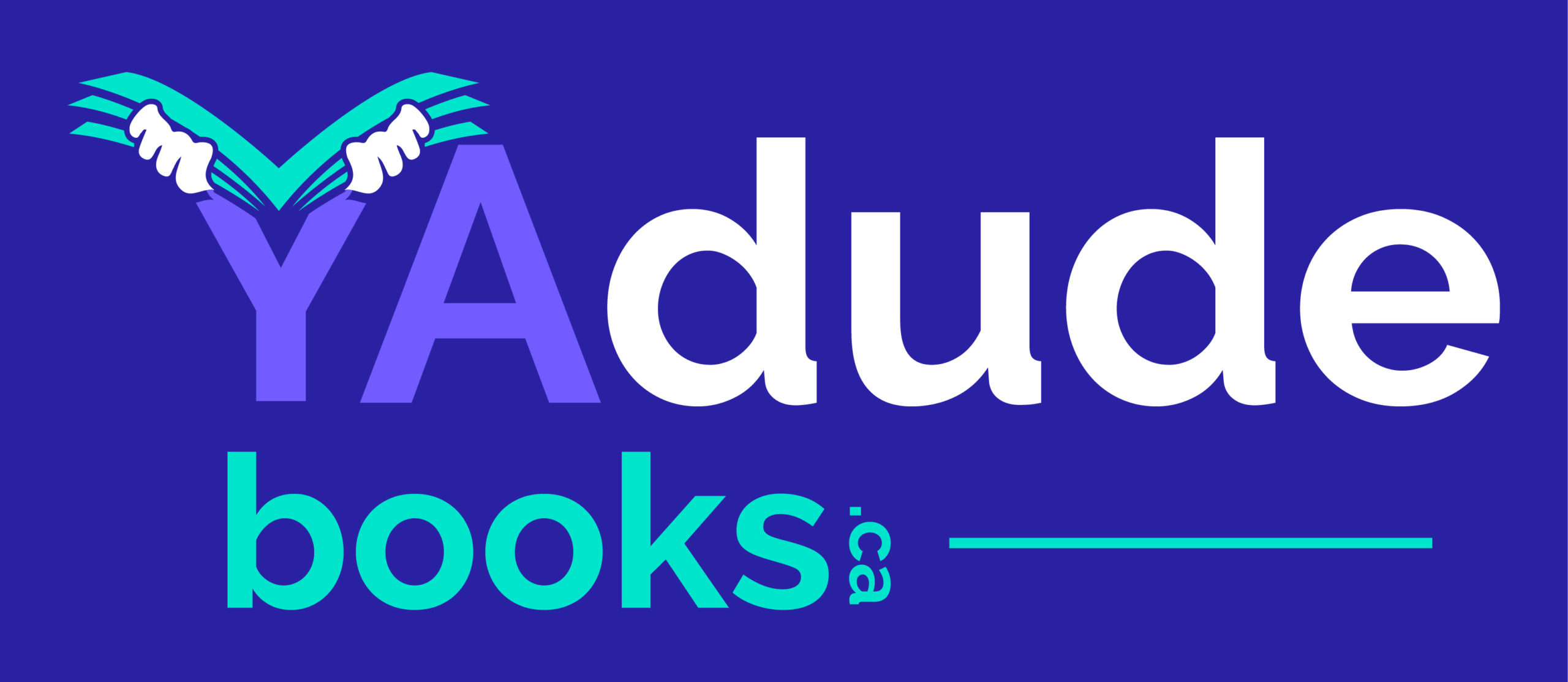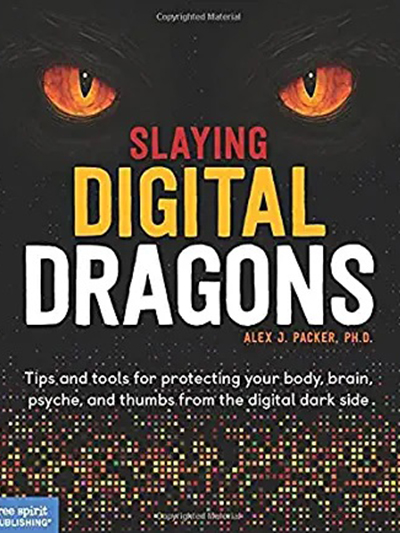Slaying Digital Dragons

Author: Alex J. Packer
Publisher: Free Spirit Publishing
Empower teens to take charge of their digital lives. Without avoiding the dark side of technology, this interactive and comprehensive reference book empowers teens to take charge of their digital life and improve their mental health and well-being. Quizzes and exercises guide readers through the process of evaluating their relationships with their screens, social media and tech in general. With a frank and humorous approach to a timely topic, award-winning author Alex J. Packer, Ph.D., pulls back the curtain on the hidden aspects of the digital world and shares:
- Signs that screen time is affecting teens’ bodies, brains and relationships
- Tips for protecting their privacy, safety and reputation
- Ways social media and algorithms can distort their reality and sense of self
- Tools for finding life balance and resetting their screen scene
Slaying Digital Dragons is a call to action to make the choices that are right for teens. It doesn’t demand ditching smartphones or deactivating social media. Instead, it suggests strategies for playing favorite games and posting on favorite apps, while also doing good in the world and bringing joy and encouragement to others. It invites readers to join the resistance and learn how to thwart the manipulative forces trying to control and profit off their users. And it gives teens what they need to stay safe and take charge of their digital life.
no-repeat;left top;; autoRaise your hand if you’re a teen who is worried about how much time you spend on your phone or online. Right, not many takers there. Okay, raise your hand if you’re an educator or parent with concerns about young people’s time on digital media. Yeah, thought we’d see more hands on that one.
Therefore, the question arises: How will a book written for teens to help them see the dangers, evaluate their own activity and wean themselves off digital time, go down with them?
“Nice try” is all that comes to mind.
Then again, if such a book might grab their attention (as opposed to making them roll their eyes), this is it. Why? Because it’s humorous, speaks directly to them in their language, and is full of self-quizzes, cartoons, sidebars, snarky speech bubbles, poems, pretend “help!” letters, speech bubbles, amusing poems and fascinating facts. Such as…
- The average teen spends 53 percent of nonsleeping time on a screen.
- “You can find anything and everything online anytime. Well, not quite. You can’t inhale the smell of brownies baking in the oven. You can’t watch the sunset until the last sliver or purple disappears. You can’t ruff-ruff-ruff-house with your dog or give your best friend a hug.”
- How to be a heroic resistance fighter against Big Tech manipulations, addiction bait and snooping.
- Got “tech neck?”
- Studies suggest that students who take class notes on laptops, compared to students who take notes by hand, do more poorly on tests and answering questions that show their understanding and appreciation of the material.
- Kids who spend a lot of time on screens are 40 percent less empathetic.
- Too much digital time can make you “conversationally constipated.”
This book is very well organized and written, but smacks of an energetic teacher trying hard to be “cool” and “one of the kids.” As in, an adult trying too hard. Therefore, it’s potentially annoying. But what’s more annoying is that if you keep reading it anyway, it soon captivates you -- that would-be hip tone, the corny humour, the barbs, the cutesy jokes, the kitschiness (defined as “considered to be in poor taste because of excessive garishness or sentimentality, but sometimes appreciated in an ironic or knowing way”), and all. That’s a backhanded compliment to the highly qualified author.
In my opinion, this is a book kids need to read, but probably won’t be open to unless they’re, say, middle-graders, as opposed to toughened, already cynical and addicted teens. However, a clever teacher or parent who finds a way to make teens read it (book report assignment, class project or discussion, a clever bribe that leads them to read it) – well, that’s probably the way to go.
Prove me wrong, teens. And educators and parents? Ready, set, good luck.
- P.W.
no-repeat;left top;; auto
